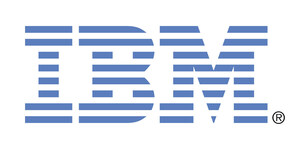ARMONK, N.Y., June 20, 2014 /PRNewswire/ -- Teams of IBM (NYSE: IBM) experts completing month-long pro bono consulting assignments in Africa recommended strategies to the leadership of Ghana, Kenya and Morocco to help improve critical public health and workforce development efforts in those countries.
The 42 IBM specialists were there as part of IBM's Corporate Service Corps, which provides problem-solving support to national and local government agencies in emerging markets, as well as to civic, social, education and business organizations in those places. Africa, a growing market for IBM, is one of the focal points for IBM Corporate Service Corps.
Particularly in the realm of healthcare, where Ghana is seeking to dramatically reduce rates of HIV infection, and where Morocco is seeking a more reliable medicine supply, IBM's recommendations included blueprints to embrace cutting edge methodologies to streamline and automate the operations of local and national agencies.
In particular, the IBM experts felt that government agencies may benefit from methodologies and technologies that enable large amounts of information -- "big data," in tech parlance -- to be gathered and analyzed, then stored, shared, delivered and updated virtually, via the digital cloud. These approaches, which provide information and insight at relatively low expense and with high reliability and security, have been shown to sharpen strategic and everyday decision making.
To that end, an IBM Corporate Service Corps team of specialists designed a model that would enable Ghanian officials to analyze data in the digital cloud to predict the results of healthcare policies, then provide mechanisms for implementing those policies. This will help Ghana allocate limited resources to only the most promising programs in its efforts to reduce the country's high rate of mother-to-child HIV transmission to 5% by 2018, and to less than 1% by 2020.
Testing for HIV during pregnancy is currently deferred due to a lack of public awareness, limited access to diagnostic tests, and cultural stigmas. Left unaddressed, the disease is often then transmitted to babies. Working with the Yale University and the ONE Campaign, the IBM team designed a plan for managing an awareness and disease elimination campaign at the community, district and national levels. IBM, Yale and the ONE Campaign are part of a consortium announced by the Ghanaian president on March 25 aimed at meeting these objectives as a national priority.
In support of those goals, IBM proposed a more secure, intelligent and effective National eHealth System, where information would be stored, analyzed and accessed in a digital cloud and built on the IBM Mainframe, allowing for deep analysis and reliable, mobile access to critical insights. Continuing work on this project is expected to be taken up by the IBM Research - Africa lab located in Nairobi, Kenya using the Mainframe at the heart of its technology strategy. IBM Research - Africa will also incorporate additional input within the health technology field in collaboration with the IBM Research facility in Haifa, Israel.
Meanwhile, in Kenya, a team of IBM Corporate Service Corps experts trained 50 students and software developers looking to enhance their technical and entrepreneurial skills. Leading training sessions at Strathmore University's iLab Africa, IBM experts provided in-depth instruction on the latest software application development, project management, product development and commercialization skills. The sessions supported Kenya's goals to enhance youth employment as part of the county's Vision 2030 development plan, and complimented the mission of IBM's Africa Skills Initiative, which helps cultivate skills on the African continent.
Some sessions focused on critical skills and technologies in high demand by employers, including cloud, big data analytics and mobile computing. To hone their expertise in building, integrating and deploying applications and services within and via the digital cloud, students received training on IBM's Bluemix. Participants used Bluemix to develop applications accessible from mobile devices that address real-life African grand challenges pertaining to agriculture, security, micro-finance and vehicular traffic. Students also learned how to program for the so-called "Internet of Things" -- an approach to automating physical or virtual devices that relies upon intelligent sensors and analytics to anticipate or respond to changing demands in the real world.
Finally, an IBM Corporate Service Corps team in Morocco worked with Ibn Rochd Hospital, one of the country's biggest such institutions, to define a plan to ensure that the right medicines are readily available to patients at the right time. The IBM experts recommended that the hospital incorporate "business process management" into its pharmacy operations, a philosophy that many successful for-profit commercial enterprises have adopted. Business process management systematically aligns an organization's processes with client needs, and is considered more effective than a traditional, hierarchical approach to management and operations.
Other members of the IBM team in Morocco developed strategic recommendations for the Moroccan Association for the Fight against AIDS that called for a more centralized process of storing, sharing and quickly analyzing large amounts of data. The IBM team there also suggested the integration of social media to broaden stakeholder engagement and education.
IBM's Corporate Service Corps team members comprise some of IBM's most talented employees, and provide skills to developing countries in disciplines that include information technology, research, marketing, finance, consulting, human resources and law. By the end 2014, IBM Corporate Service Corps will have dispatched approximately 3,000 IBM employees originating from 56 countries on engagements to 37 countries -- making this pro bono problem solving program one of the world's largest. By the end of 2014, IBM's Corporate Service Corps will have deployed 800 IBM employees since 2008 for projects in South Africa, Ethiopia, Angola, Senegal, Tanzania, Nigeria, Ghana, Kenya, Morocco and Egypt.
Follow IBM's Corporate Service Corps on the CitizenIBM blog at www.citizenIBM.com and on Twitter, at @citizenIBM.
Contact(s) information
Ari Fishkind
IBM Media Relations
01 (845) 362-3837
[email protected]
Logo - http://photos.prnewswire.com/prnh/20090416/IBMLOGO
SOURCE IBM
WANT YOUR COMPANY'S NEWS FEATURED ON PRNEWSWIRE.COM?
Newsrooms &
Influencers
Digital Media
Outlets
Journalists
Opted In





Share this article